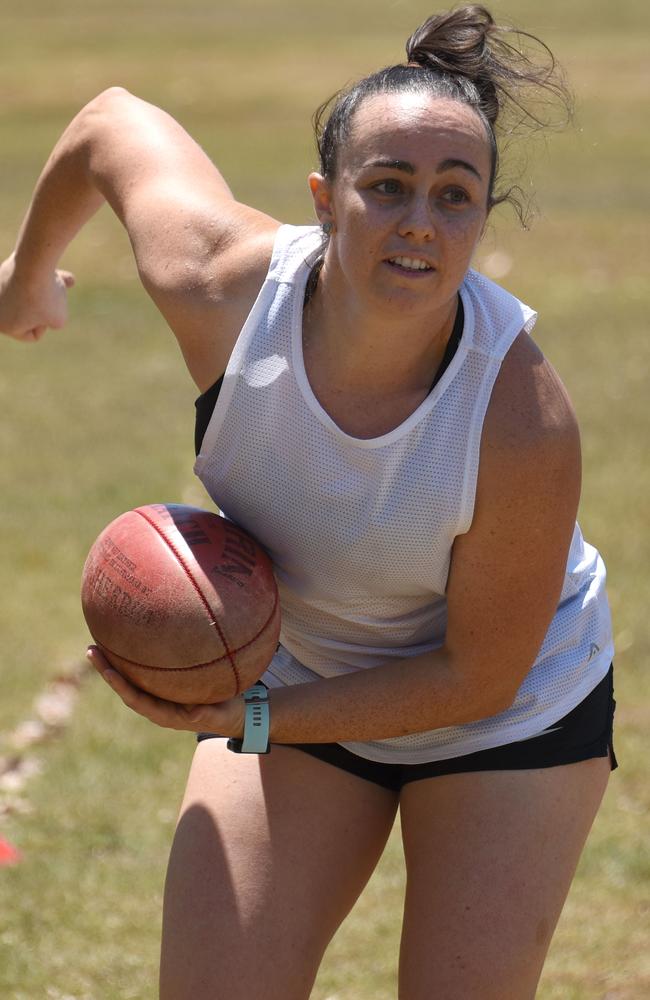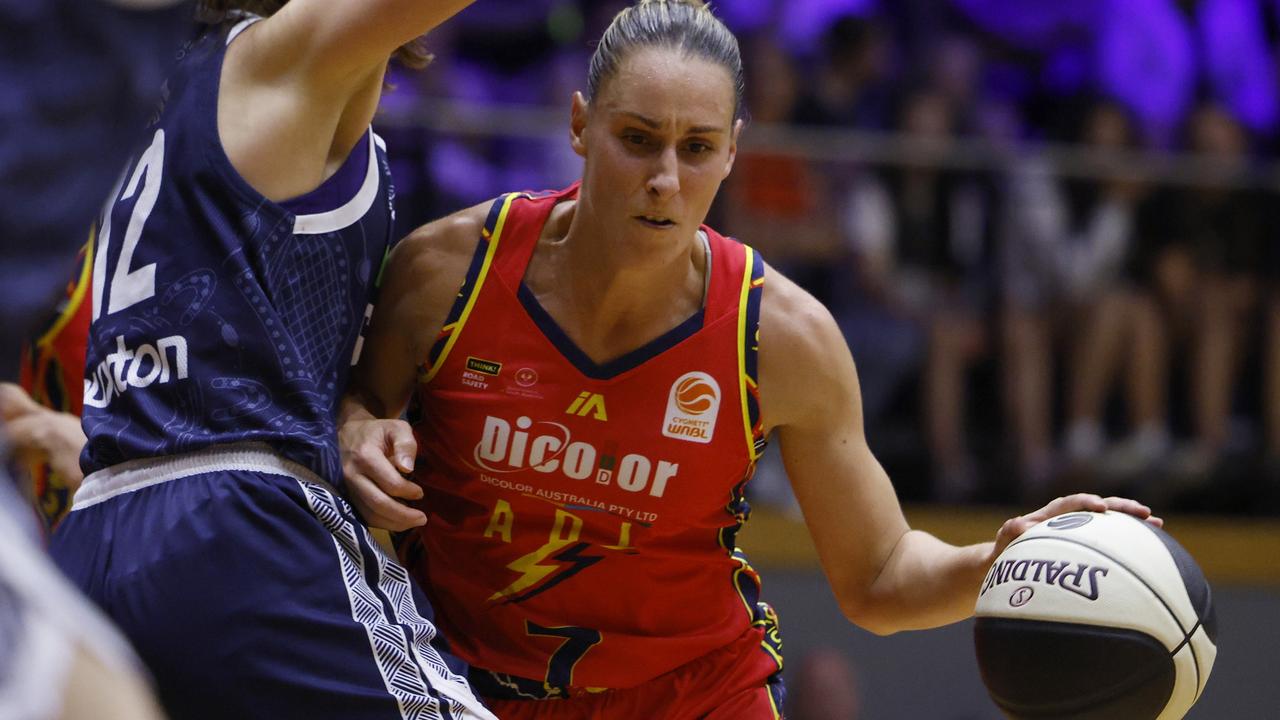Insight: Women’s Aussie Rules player Lydia Pingel pledges to donate her brain to the Australian Sports Brain Bank amid CTE fears
Lydia Pingel was forced into medical retirement after she suffered seven concussions in three seasons. It affects her daily.
CODE Insight
Don't miss out on the headlines from CODE Insight. Followed categories will be added to My News.
Some mornings, Lydia Pingel forgets that she only drinks a long black coffee.
She gets to the cafe counter, tries to order and loses her words because of the repeated concussions she suffered during her football career.
It’s why Pingel is donating her brain to the Australian Sports Brain Bank so, when she passes, researchers can determine exactly how she was impacted by the damage and whether she has Chronic Traumatic Encephalopathy (CTE), the degenerative condition plaguing a generation of athletes and redefining how sports treat head injuries.
Pingel, 31, was forced into medical retirement in 2020 after she suffered seven concussions in three seasons playing for Bond University in the Queensland AFLW, one tier below the AFLW.
It affects her daily.
“The other day I was getting coffee, like I do every single day, the same coffee order, I don’t ever change it, and I get to the counter and they say, ‘What would you like?’, and I completely forgot,” Pingel said.
“I thought, ‘I don’t know the coffee that I want, but I absolutely should know that’.
“And I just ummed and aahed and covered it up by saying, ‘I haven’t had my coffee this morning, that’s why I can’t remember’. But I was actually thinking, ‘Holy s***, why can’t I remember?’

“And again, the other day I was getting a blood test done and they’re asking, ‘What’s your name, what’s your address, what’s your phone number?’ And I couldn’t remember what my mobile number was, had no idea.
“Simple things like that, memory lapse is my biggest thing. That’s a daily thing for me. I’ll boil the kettle, go do something else, an hour later come back and remember that I was making a cup of tea.”
With little that can be done to alleviate her symptoms, Pingel hopes that her brain’s tissue data may help the next generation of athletes avoid her struggles.
“I’ve already signed up to donate mine to the Brain Bank, as soon as I found out about them I said, ‘Yep, mine is going, I would rather it be researched’,” she said.
“Reading what CTE is, and everything that comes along with it, I would not be surprised that I would have it.
“I would think given history and symptoms, you would probably place me in that category of having such a condition. I’m more than happy for my brain to go to research to be studied.
“I still have headaches all the time, I struggle to focus, it’s completely different to how I used to be.
“Even exercise has got to be tailored because you can’t really perform. I get symptoms that people may experience a couple of days after (a concussion), whereas I still experience that a few years on.

“It definitely impacts work life, your social life – pretty much every part of your life, because you still suffer various symptoms at various intensities and stages. You do what you can to control it in a way, but it’s not like you can flick a switch and it won’t be back.
“It’s more like, ‘What will today bring? Will I be light sensitive, noise sensitive, or will I have a good day?’
“It’s a forever battle as I call it. You don’t get too much of a break from the ongoing symptoms. I’ve had a lot of conversations with people who’ve read about my story and said, ‘I’m going through similar things’.
“I believe a lot more people are going through this than we realise.”
Like most doctors who study concussion, Pingel is convinced her brain trauma was not only caused by the injuries she suffered in football.
“I had seven notable ones, but I played sport all my life and I remember having my first one at 13 when I was in high school, (I) got a baseball to the head,” Pingel said.
“Then I probably had, before footy, between five to 10 anyway, playing sport and being such an active person. I got a couple of knocks playing soccer, a couple playing touch footy as well, and then those seven in the three years with the AFL were the big ones.
“There were probably innocuous ones in training that could have counted as well.
“I definitely regret not taking things more seriously, but I was also none the wiser like a lot of people were.
“Especially when you look normal, people say, ‘What do you mean you’ve got this, this and this? You look fine?’ It’s very much an internal thing, you’re very aware it’s happening but you can’t control it, it’s unpredictable.
“So navigating life now is a struggle. But you can either sit in it and be like, ‘Woe is me’, or you can get on with it. You can’t reverse it now, what’s done is done.
“I liken it to if you roll your ankle 10 times, you’ll have a dodgy ankle. I’ve had repeated concussions so my brain doesn’t function how it used to, unfortunately.
“There’s no definitive end date to it, it’s a waiting game.”



